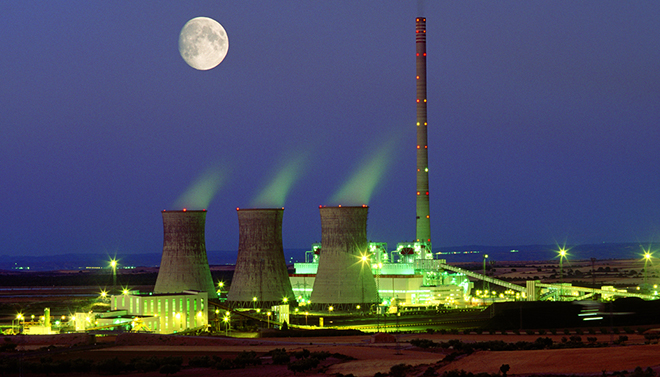
The Litoral coal plant in Spain was closed at the end of 2021 by Enel subsidiary Endesa. Enel plans to phase out its coal fleet by 2027.
|
Most of Europe's largest coal-burning utilities are falling short on their net-zero commitments, with a new report identifying a "gaping hole" between their pledges to achieve climate neutrality and their intentions to phase out coal.
While 16 of 21 coal utilities analyzed in Europe have net-zero goals — the majority for 2050 — fewer have a coal phaseout plan aligned with the International Energy Agency's net-zero road map, campaign group Europe Beyond Coal and think-tank Ember said in a Jan. 25 report.
The IEA said in May 2021 that to achieve net-zero, unabated coal must be phased out by 2030 in advanced economies and by 2040 in the rest of the world. Forty-six nations globally, including several in Europe, unveiled national plans to phase out coal at the COP26 climate change conference in Scotland in 2021.
Europe Beyond Coal and Ember said only nine of the utilities analyzed are on track for the IEA's 2030 deadline, and six plan to burn coal past 2040.
"All the talk of mid-century [net-zero] targets is just fluff so long as their business plans have no way of delivering on them," Kathrin Gutmann, campaign director at Europe Beyond Coal, said in a news release.
The companies analyzed include some of Europe's largest and most geographically diverse utilities, along with several national power generators from Eastern Europe. Within the sample, the level of ambition varies greatly, the report said.
For instance, Iberdrola SA, Naturgy Energy Group SA and SSE PLC have already phased out coal, and Ørsted A/S, Electricité de France SA, Enel SpA and Engie SA all plan to do so before 2030. Meanwhile, Bulgarian Energy Holding EAD, Sev.en Energy AG, Tauron Polska Energia SA and PGE Polska Grupa Energetyczna SA anticipate "little or no decrease in coal capacity" from 2020 to 2030.
In total, the assessed utilities have about 108 GW of installed coal capacity, which needs to decrease 95%, or 103 GW, by 2030 to comply with the IEA's timeline. As it stands, there will still be 49 GW of coal online in 2030, the report said.
Gas phaseout plans
The IEA's road map foresees a net-zero electricity system in advanced economies by 2035, and by 2040 elsewhere, which beyond phasing out coal also means dramatically reducing the amount of installed fossil gas generation in Europe.
Among the utilities analyzed in the report, the researchers expect about 197 GW of fossil gas capacity to still be online after 2035, including about 23 GW that is yet to be built.
Only three of the utilities — Fortum Oyj, RWE AG and SSE — refer to carbon capture, utilization and storage technology plans for their fossil gas plants, according to the report. Meanwhile, 15 mentioned hydrogen, including commitments to make their gas plants hydrogen-ready.
The report described the hydrogen commitments as "understandably vague" because turbines that can generate electricity using 100% hydrogen will not be available until 2030.
"What must be avoided is uncertain and speculative hydrogen-ready claims being used to justify new or converted fossil gas-fired generation or enable current gas plants to remain operational for longer," the report said.
'A line in the sand'
The report recommended that investors, lenders, underwriters and insurers hold the 21 coal-burning utilities to account over their net-zero pledges and scrutinize their targets if they lack an "unambiguous" coal phaseout plan by 2040 at the latest.
It also urges stakeholders to assess the companies' renewable energy ambitions, given they are "key players in making the IEA's vision a reality."
The total wind and solar generation by all 21 companies is slated to quadruple by 2030, reaching 428 GW, but a sixfold increase is needed to align with the IEA's road map. Eastern European utilities most urgently need to ramp up renewables ambitions, the report said.
"It's time to draw a line in the sand," lead report author Kaarina Kolle said in a news release. "If companies do not align their business plans with the intermediate milestones required to deliver on their net-zero pledges, financial institutions providing them with support must intervene."



